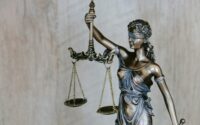Colorado’s Assisted Reproduction Bill Passes After Amendments Minimize Harm to Donor Conceived Persons and Families
USDCC expressed strong opposition to Colorado House Bill 25-1259 when it was introduced, but many of the provisions that could have harmed Colorado's protections for donor conceived people and their families have been minimized.







